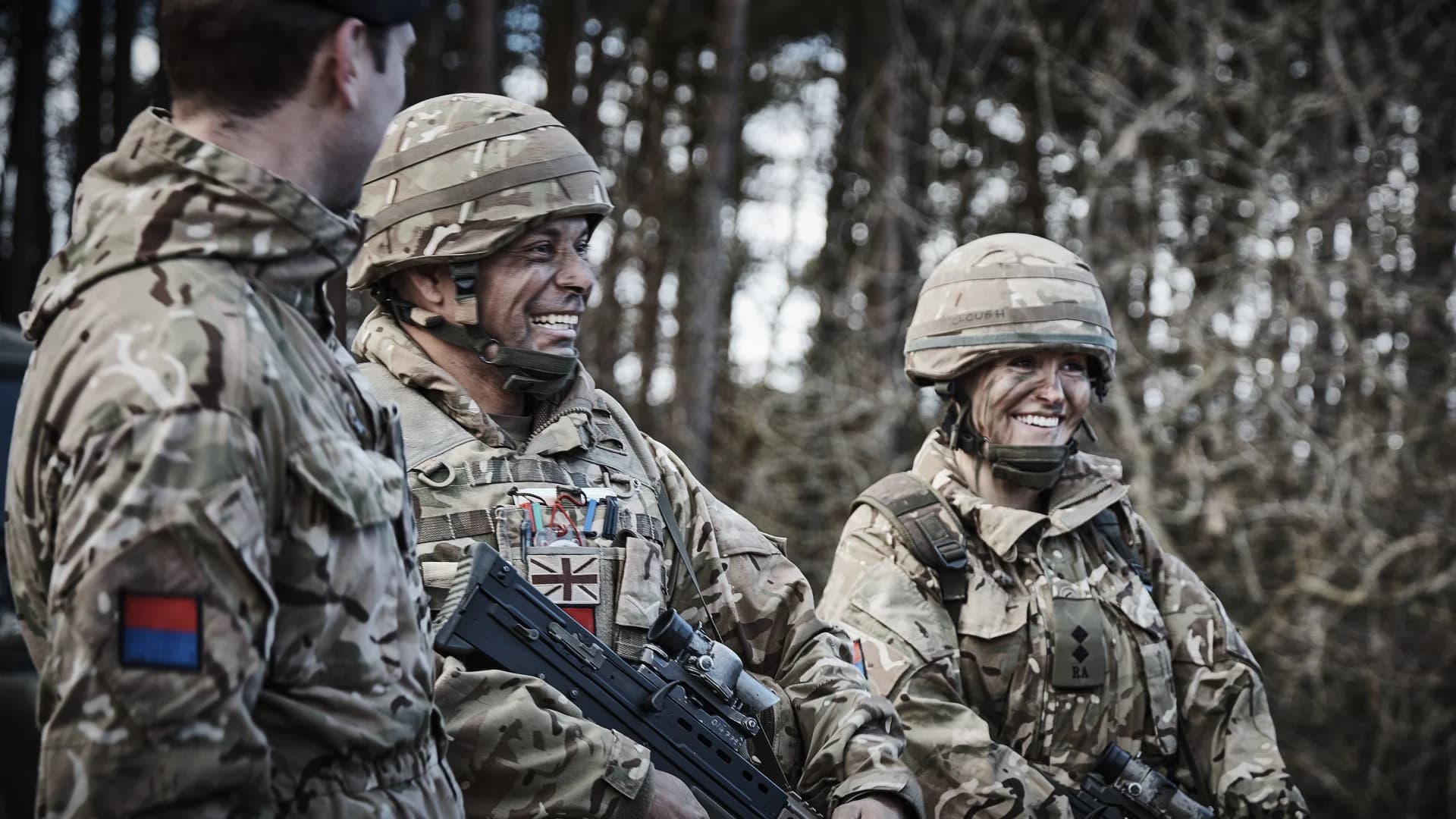
At what stage in medical training can a doctor specialise? And can Doctors specialise in Trauma medicine?

Additional information
As well as Trauma medicine and when can a doctor specialise in a certain field, can British Army doctors do Aeromedical Evacuation like the MERT? Could a doctor also be attached to units like 16 Air assault brigade and if so, do they receive specialised training? What does a British Army doctor do on an average daily basis? And lastly, can a doctor be attached to the special forces and if so, what would they be doing? Thank you in advance.
Anonymous asked a question to Tori C.
Category: Role Description
Date asked: Friday, October 2, 2020
Last reviewed: Thursday, October 8, 2020

Tori C.
Regimental Medical Officer
Hello,
I'll try and go through your questions individually, I can't promise I know all the answers but I will give it a go!
'At what stage in medical training can a doctor specialise?'
We apply for specialty training in the final year of our general duties, this is 4 years after you finish medical school, you then start specialty training 5 years after medical school. (2 years foundation programme and 3 years as a GDMO).
'Can doctors specialise in trauma medicine?'
Yes, but it also depends what you mean by that! We have lots of specialists that deal with trauma.
Our GPs will have training in pre hospital emergency care, including trauma. Some will train to higher levels than others.
Our A&E consultants are trained in trauma.
Our General surgeons also train in trauma surgery.
Our Anaesthetists will manage trauma patients.
'Can you do aeromed eg MERT?'
MERT can be both ground or air based. Usually aeromed is manned by RAF personnel, and the doctors will usually be anaesthetists.
'Can you be attached to 16?'
Yes, you can work for 16 medical regiment who provide the medical support. Usually GDMOs and RMOs deploy with 16. Secondary care specialists do also deploy, but not as frequently and will divide their time between the regiment and the hospital they work in.
You can opt to do P-company whether you are attached to 16 or not.
'Can you be attached to SF?'
Yes, again this is primarily RMOs (GPs).
'What does a British Army Doctor do on a daily basis?'
There are many different types of doctor in the army! But I'll give you an idea of what the RMOs (GPs) do.
Run clinics in the medical centre, both doing primary health care and occupational medicine.
Teach and supervise combat medical technicians that work with them.
Advise the unit on medical matters.
Attend training/courses on a huge variety of topics, including pre hospital emergency care, travel medicine, primary health care.
I hope that helps.
Wednesday, October 7, 2020
Anonymous
Hello, thank you for replying! Could I ask, is a RMO always a GP or can a RMO have a different speciality such a Emergency medicine or general surgery?
Wednesday, October 7, 2020

Tori C.
Regimental Medical Officer
An RMO is always a GP.
Wednesday, October 7, 2020
Anonymous
And could I ask, is the Job of a RMO the same as a civilian GP but in a military setting? And could RMO be part of a Role 1 care? Lastly, would you need to be a GP/RMO to be attached to Special Forces, or could you be a different speciality? Thank you
Wednesday, October 7, 2020

Tori C.
Regimental Medical Officer
Very different to a civilian GP! Military GPs are trained in pre hospital emergency care - civi GPs are not, unless they volunteer with BASICS or similar.
RMOs run the Role 1 facilities, unless it's run by a GDMO or ANP (but then they will still supervise remotely). They also do occupational medicine as well as primary healthcare when in their Med centre roles.
There is always a (highly trained) RMO attached to each special forces unit. I've not heard of a secondary care specialist being attached directly to SF. However there will be secondary care specialists who support the SF when required, and work in their normal hospital the remainder of the time.
Wednesday, October 7, 2020
Anonymous
Thank you for clearing my confusion! So since Military GPs are trained in emergency care(among other qualities), if you went to the NHS, would you become a GP or would you be doing emergency medicine?
Wednesday, October 7, 2020

Tori C.
Regimental Medical Officer
RMOs are GPs, so could work in an NHS GP surgery, but lots go on to do other things, or they leave the army but continue to work for the MOD as a civilian. Some will work in A&E departments, but as a GP.
I had a chat with an EM colleague this evening and they said while EM docs are not specifically attached to SF, they certainly deploy a lot in support of them, as well as other army units (such as 16). So perhaps that is something you might be interested in?
Choosing what you want to do before you've tried being a GDMO is tricky, most of my colleagues changed their minds a few times as GDMOs, so I would advise trying that first before you make any firm decisions.
Like lots of parts of medicine, the bits that sound cool aren't necessarily the things you find you enjoy when you try them. The great thing about FY1&2 and GDMO is that you'll get to try out lots of specialties before you commit to one.
I get asked a lot about working with the SF and 16, but there are lots of other great units in the Army, many who do some really fun deployments, but perhaps also have a better work/life balance.
If you're considering pre hospital care and you have no concerns about working in a fixed location, then I'd highly recommend applying and trying it out. Even if after GDMO you decide it's not for you, you'll have had a fantastic experience and had the chance to do some really interesting jobs.
Wednesday, October 7, 2020

Tori C.
Regimental Medical Officer
What stage of training are you currently at?
EM docs can CCT in PHEM, GPs do Dip IMC, so that gives you an idea of the different levels of care. The support from both of them will vary considerably depending on the deployment.
Fitness wise it depends what you mean. If you want to become an Army athlete or elite athlete (like some of our doctors have done) then you want to be with a unit that gives you time to pursue that. Being attached to a busy unit may not be the best choice.
If you mean more army related fitness, you'll be able to ask to attempt an arduous course (P company or the all arms course) during GDMO, regardless of which unit you're attached to.
Thursday, October 8, 2020
This discussion is closed, so no new comments can be added.